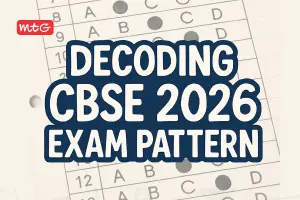
Social Science is a crucial subject in Class 10, forming the foundation for future learning. With the right approach, it is not only possible to excel in it but also develop a genuine interest in the subject. This blog will suggest the best strategies to study Social Science effectively for Class 10, helping you score high marks in exams. Social Science plays a crucial role in understanding the world. A good command on the subject is necessary to score full marks in CBSE board exams.
Practice – CBSE Class 10 Sample Papers 2024-2025 – Free PDF Download
Break Down the SST Syllabus
Social Science in CBSE Class 10 Board Exams consists of four subjects – History, Geography, Political Science (Civics), and Economics.
Students must prioritize certain topics with high weightage, such as nationalism in India, water resources, manufacturing industries, power sharing, and sectors of the Indian economy.
How to Prepare for History
- Focus on Chronology and Events
Use mnemonics, visualization, storytelling, and quizzes to learn important dates, events, and timelines for history preparation.
- Use Mind Maps
Students can create mind maps to connect historical events and themes.
- Important Chapters in History
Students must have a good command on chapters, such as nationalism in India and the rise of nationalism in Europe.
You will also like – Smart Last Moments Strategies To Prepare Class 10 SST Board
How to Prepare for Geography
- Study Maps and Diagrams
To score good marks in Geography, students should focus on understanding geographical relationships between features. They need to use an atlas or digital maps and practice locating places, rivers, mountains, and cities. Create flashcards or concept maps.
- Understanding Concepts
To ace Geography, students should focus on topics, such as resources, agriculture, and industries.
- Important Chapters in Geography
Give priority to high-weightage chapters, such as resources and development and agriculture.
Also Check – 60 Important Questions for Social Science Class 10
How to Prepare for Political Science (Civics)
- Understand Political Concepts
In order to prepare for Political Science (Civics), students need to understand the importance of democracy, power-sharing, and federalism. They can follow the news channels and news papers to understand how democracy work. They can also learn how coordination between various state governments and the central government facilitates power-sharing and federalism. Several questions encompass these important aspects of political science.
- Learn through Real-Life Examples
Students can refer to current events for better understanding of civics. The real-life examples clear a lot of theoretical concepts such as dictatorship, autocracy, anarchy which otherwise look very mechanical to understand.
- Important Chapters in Political Science
Students should focus on chapters like power sharing and democracy & diversity as they have good weightage in the CBSE board exams.
Recent – 6 Mistakes Students need to Avoid 3 Months Before CBSE Board Exams
How to Prepare for Economics
- Focus on Core Concepts
To prepare well for Economics, understand economic development, sectors of the economy, and money & credit. They can learn through real life examples from newspapers and news channels. Also, watching documentary can help.
- Use Case Studies
There are a lot of example and case studies available in the textbook which can help students in brushing up their theoretical concepts.
- Important Chapters in Economics
For the preparation of economics, students should prioritize chapters like development and sectors of the Indian Economy. They hold good weightage in the board exams.
Check the complete class 10 syllabus – CBSE Syllabus for Class 10
Best Study Techniques for SST
- Make Use of NCERT Textbooks
The NCERT textbook is your primary resource for Class 10 Social Science. Stick to the NCERT syllabus and ensure you thoroughly understand every chapter. It forms the base for all board exam questions, so mastering this book is essential.
- Take Notes and Highlight Key Points
Summarize key concepts and reactions in your own words. Writing down important points and definitions helps you remember them better. Use color codes for different topics to make your notes more organized and easier to revise.
- Practice Sample Papers and Previous Year Papers
Students must solve CBSE class 10 sample papers and previous years’ question papers to get an idea of the exam pattern and the level of difficulty of questions.
Time Management and Study Schedule
- Create a Study Timetable
Creating a study timetable is essential for balanced preparation. Allocate more time to difficult chapters, but ensure you cover the entire syllabus. For instance:
- Week 1: History
- Week 2: Geography
- Week 3: Civics
- Week 4: Economics
- Balance Between Theory and Practice
Students need to maintain a proper balance between theory and practice. Although social science is theory-focused subject, learning to locate locations on map is equivalent to practical work in social science. So, learn to locate important regions on map.
Focus on Revision
- Revise Key Concepts Regularly
Students should learn to revise SST effectively by using flashcard and summary notes.
- Practice Map Work
Also, they should give special focus on map-based questions in Geography.
Useful Resources for SST Preparation
- NCERT Solutions
Solving NCERT-based questions play a major role as CBSE board questions mostly cover NCERT questions only.
- Online Learning Platforms
Students can refer to MTG for online videos and right guidance for the preparation of social science for board exams.
Tips to Stay Calm and Confident Before the Exam
- Avoid Last-Minute Cramming
Right before the board exams, students should refrain from last-minute cramming rather they should focus on revising calmly and confidently.
- Stay Healthy and Take Breaks
Students should maintain their health and take short breaks while preparing for board exams. Breaks and relaxation play a major role in keeping you energized to prepare for the exams.
Conclusion
To succeed in social science studies for board exams, students must know the importance of consistent study and strategic revision for scoring well.
































